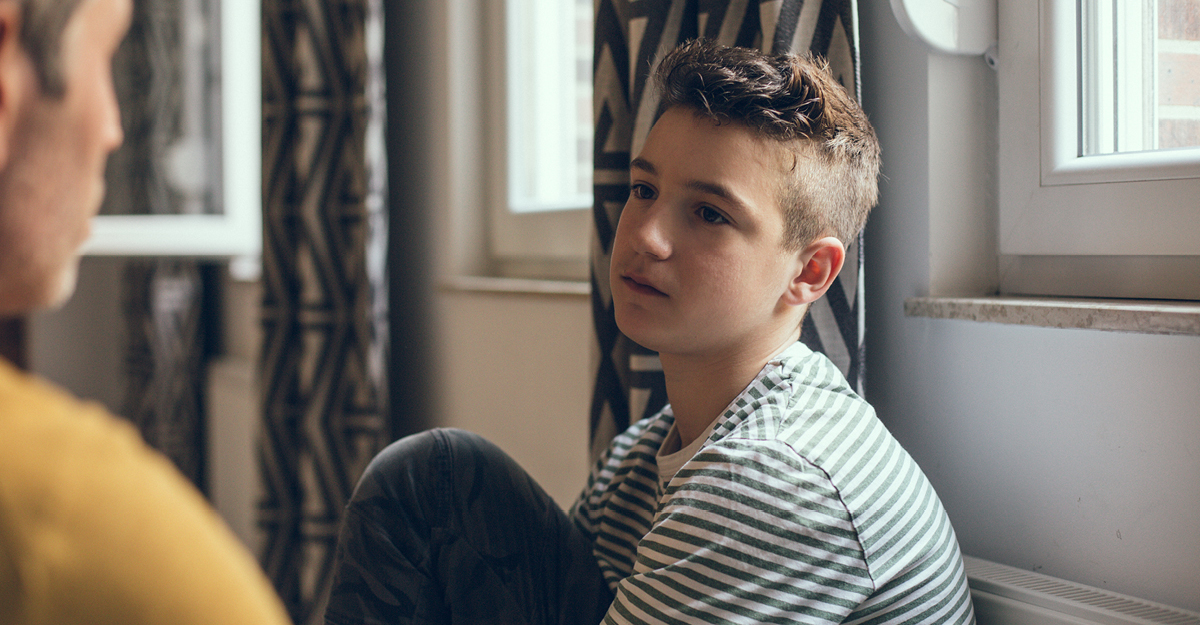The trope of the troubled teenager has persisted throughout time. It’s often cited by adults brushing off a teen’s problems as a side effect of adolescence. Because of the multitude of developmental and social changes during this period, teens can experience unique stressors that result in behavioral changes. Preteens and teens who have trauma experiences, mental health struggles, developmental challenges or major changes in home or school life may need extra patience, compassion and help.
Warning signs your teen may be struggling
Teenagers may be unable to recognize their behavioral changes or problems. Even if they do, they may not know how to ask or feel comfortable asking for help. Here are some of the signs that a teen in your life is struggling.
- Abusing drugs, alcohol or prescription medicines
- Acting out
- Anger and aggression
- Anxiety
- Attempting to control the environment to the extreme
- Body dysmorphia and drastic changes in appetite
- Bullying and problems with peers
- Changes in sleeping patterns
- Depression or thoughts of suicide
- Isolation
- Low self-esteem
- Lethargy
- Mood swings
- Self-harm or cutting
- School problems or truancy
What causes these behaviors?
Perceived negative behaviors may be bewildering and frustrating for parents and caregivers, but they are often symptoms of a deeper issue.
Just as trauma can affect adults’ day-to-day functioning, teens may be living with past or current trauma, such as the loss of loved ones, abuse, neglect and bullying. Studies show that those who experience trauma early in life have a higher risk for developmental difficulties, including both mental and emotional adjustment. Trauma left unaddressed can lead to post traumatic stress disorder.
Teens also experience ups and downs with their mental health, and some experience chronic mental health issues that they and their families likely cannot manage on their own. Anxiety and depression are the most common mental health struggles affecting teenagers. In fact, between 3% to 7% of children ages 3 to 17 have diagnosed anxiety or depression, according to the CDC. Additionally, teens who live with developmental differences such as those on the autism spectrum can have difficulty relating to and communicating with others, which could cause feelings of isolation and frustration.

How to talk to your teen about your concerns
Teens know that trauma, mental health struggles, developmental differences and other turbulence can lead to damaging behaviors. In fact, 7 in 10 teens believe anxiety and depression is a major issue among their peers, and 4 in 10 say bullying, drug addiction and alcohol consumption are a major concern, according to a Pew Research Center report.
It’s important for teens to know that behavioral issues don’t reflect on their worth; they should still feel supported, loved and accepted by friends and family. While a teenager may not always jump at the chance to talk their parent, make sure they know you’re always available to listen. Encouraging them to talk to peers or mentors can also help them open up.
If they do want to talk, focus on listening and validating their feelings. Teenagers want to be taken seriously. They can experience “adult” problems, and these struggles should be treated with care.
When to seek help
When teens and families face a seemingly insurmountable behavioral health problem, Ellipsis can help. There are often multiple causes for behavioral issues. Our team treats your teen and family with compassion and a variety of services to meet all your unique needs.
We provide specialized care, counseling and therapeutic support that seeks to understand the root of the concern, address it and establish healthy responses for preventing it in the future. Together, we can focus on helping children, teens and families become happier and healthier so they can have successful futures.
Ask about our services by calling us at 515-243-3459 or sending a message today.
